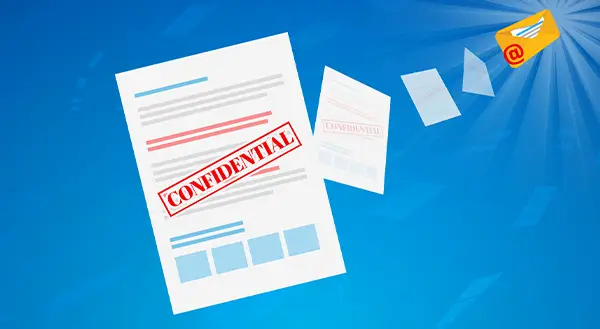Never Email These Sensitive Details

Email is a fantastic tool for communication. It’s quick, easy, and allows you to connect with clients, colleagues, and partners with just a few clicks. But as convenient as it is, email isn’t always the safest place for certain types of sensitive information. Some things should absolutely stay out of your inbox. Let’s walk through what you should never put in an email and why.
Login Credentials and Passwords: A Hacker’s Goldmine
Imagine if someone broke into your email account. Now, think about what they could find. If you’ve ever emailed login credentials or passwords, you’ve left the door open for them. Hackers can easily search your emails to find this information, giving them deeper access to your business systems, bank accounts, and more. It’s like leaving the keys to your office under the doormat. Don’t do it.
What to do instead. Use a password manager to share credentials securely with your team. And if you must send this information, always use an encrypted method that ensures only the intended recipient can access it.
Credit Card Numbers: More Than Just a Bad Idea
Sending credit card numbers through email isn’t just risky; it can also get you in trouble. There are strict rules about how credit card information should be stored and transmitted, and email doesn’t meet those standards. If your email is compromised, your business could be on the hook for any unauthorized transactions, and the consequences could be severe.
What to do instead. For any transaction involving credit card information, use secure payment platforms designed to handle this data type. These platforms are built with security in mind and comply with the necessary regulations.
Passport and Driver’s License Numbers: Identity Theft Waiting to Happen
Your passport and driver’s license numbers are more than just digits; they’re key pieces of your identity. Many services use these numbers to verify who you are, meaning someone could impersonate you if they fall into the wrong hands. This could lead to everything from fraudulent accounts being opened in your name to issues with law enforcement.
What to do instead. If you need to share this information, do it over a secure platform designed for sensitive data or in person.
Protected Health Information: Compliance Isn’t Just a Suggestion
If your business handles any kind of health-related data, you already know there are strict rules around how it should be stored and shared. Email doesn’t cut it. Whether it’s patient records, medical histories, or any other form of Protected Health Information (PHI), putting it in an email could lead to severe compliance violations.
What to do instead. Use secure, compliant systems specifically designed for storing and sharing health information. These systems encrypt data and ensure that only authorized individuals can access it.
Information Under Attorney–Client Privilege: Protect Your Legal Communications
Attorney–client privilege is a big deal. It means that certain communications between you and your lawyer are protected from being disclosed in court. However, if anyone outside your legal team views these communications, that privilege could be lost, and the content of those emails could become evidence.
What to do instead. When sharing legal information, stick to secure methods that ensure confidentiality, such as encrypted emails or secure client portals provided by your attorney’s office.
Keep Your Sensitive Information Safe
There are plenty of ways to share sensitive information without putting your business at risk. Depending on what kind of data you’re dealing with and your industry, there are options such as encryption, secure file-sharing platforms, and even specialized software designed to keep your information safe.
If you’re unsure how to handle your sensitive information, don’t hesitate to contact us. We can help you find the right solution for your business, ensuring your data stays secure without compromising your workflow.
Call us today at 312-561-0000.